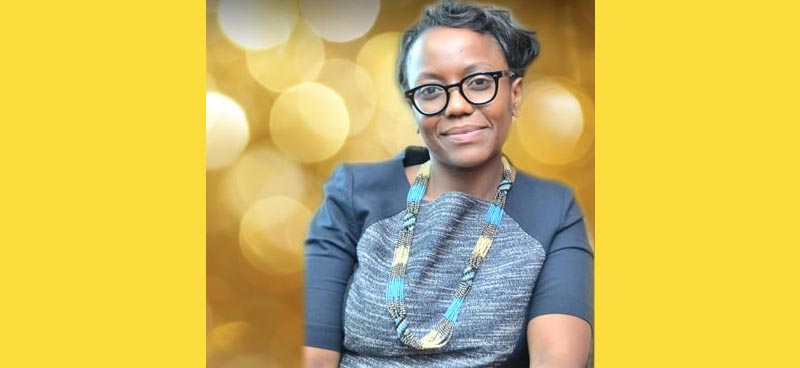
The year 2020 is a year we will never forget. We’ve accepted the new norms of confinement at home, avoiding the embrace of family and friends, rationing our food supplies, and working, socializing and educating by video conference … if we are amongst the lucky ones. The less fortunate ones — people who have no access to food supply or adequate healthcare systems nearby, or the luxury of space for social distancing, let alone a wi-fi connection to continue their work or schooling — have borne the brunt of the tragic consequences of the pandemic.
In a matter of months, the COVID-19 health crisis has forced not only individuals but entire countries around the world to dramatically and quickly change our behaviors to protect ourselves and those around us. Now, what would you say if I told you this crisis is just a rehearsal for another, even greater, crisis looming over us?
Climate change is the biggest threat to our lives, with devastating consequences we can’t even begin to imagine, and it needs to be treated with similar urgency as the coronavirus. The world can learn some lessons from the current pandemic to prepare for what will happen when climate change really hits us in full force. On the positive side, the global shutdown has led to an unprecedented reduction of carbon emissions, and thus cleaner, bluer skies —but at a high human and economic cost.
From what we are seeing, we may need an annual COVID 19 crisis to help the world reach the Paris agreement limit to keep global temperature rises below 2 degrees centigrade. We cannot and should not pay that price.
—Kanini Mutooni, Managing Director, the Draper Richards Kaplan Foundation & Special Advisor, Toniic Network
Kanini Mutooni, Managing Director, Draper Richards Kaplan Foundation and Senior Advisor, Toniic Network
Mutooni was amongst the 40 prominent business leaders, innovators, investors and changemakers speaking at the 2020 TRANSITION FORUM, which I helped to organize recently. As one of the female founders of INSPIRELLE, I’m proud to say that nearly half of the speakers at the conference were women. We’d like you to meet some of these inspiring women at the forefront of global efforts to tackle climate change — from boardrooms and local communities, from rural farms and the forests of Uganda.
KANINI MUTOONI
Managing Director, Draper Richards Kaplan Foundation and Senior Advisor, Toniic Network (UK)
Kanini Mutooni is the Managing Director for the Draper Richards Kaplan Foundation, which finds, funds and supports exceptional leaders tackling some of society’s most complex problems. She plays a lead role in sourcing new investments and working with the leadership of those organizations, primarily in Europe, Africa and India as they grow to build capacity and to achieve their maximum impact. Kanini simultaneously serves as a Special Advisor for Toniic, the global action network for impact investors. Prior to this, Kanini was the Director for Investment at the USAID-funded East Africa Trade and Investment Hub, a $65M, 8-country initiative to attract investment and increase trade in the East Africa region.
She is currently Board Chair of The Global Innovation Fund, a $250M fund which focuses on investing a range of capital for innovations in emerging markets that impact those living on $5 a day and below with a focus on food and agriculture, healthcare, clean energy, and fintech. In 2014, Kanini was recognized by the World Economic Forum as a Young Global Leader for her exceptional leadership in business, the health sector and global entrepreneurship.
SABRINA KRIEF
Primatologist, Veterinarian and Professor, the National Museum of Natural History (France)
An expert in the intersection of wildlife and humanity, Sabrina Krief is a professor at the Muséum National d’Histoire Naturelle (National Museum of Natural History) in Paris and a veterinarian by training. For more than 20 years, she has been studying our closest relatives, wild chimpanzees, and how they are surviving together with humans and forests in Uganda.
In 2006, together with her husband, Jean-Michel Krief, she founded the Project for the Conservation of Great Apes (PCGS) association, which aims to protect the great apes and their ecosystem, the tropical forest, from the threats they face. Together, they manage the Sebitoli Chimpanzee Research and Conservation Station in Uganda and created the Sebitoli Chimpanzee Project, made up of Ugandan researchers, students and 25 research assistants. Sabrina’s scientific work focuses on the diet, health and self-medication of great apes, but also on the resilience of great apes and tropical forests to human activities (pollution, tropical forest fragmentation, poaching, etc.)
BRANDI DE CARLI
Founding Partner Of Farm From A Box (USA)
Brandi DeCarli is the dynamic Founding Partner of Farm from a Box, an off-grid, modularly-designed farm system that provides communities with the tools and technology needed to increase local food production — in a shipping container. Known as the “Swiss Army Knife” of sustainable farming, Farm From a Box is a multi-purpose toolkit that can connect schools with healthy food and an edible education, modernize farming operations with improved technology powered by renewable energy, or jumpstart food production after a disaster.
Brandi is currently a SheEO Venture, an advisory member of Jordanian agritech accelerator HASSAD, and a Rising Talent with the Women’s Forum. She is a frequent global speaker on technology’s role in climate resilience, economic empowerment, and women’s leadership, including her TEDx talk, “How technology and togetherness can transform our world.” A firm believer in the power of collaboration, Brandi is passionate about rejecting old rules and driving positive change in the world through innovation, compassion, and connection.
MICHÈLE SABBAN
Honorary President, R20, Chairwoman of R20 France and President of the R20 Green Fund for Women (France)
Michèle Sabban is a founding member of R20 – Regions of Climate Action, a non-profit international environmental organization started in 2011 by former Governor of California Arnold Schwarzenegger with the support of the United Nations. Its mission is to accelerate sub-national infrastructure investments in the green economy to contribute to the Sustainable Development Goals. She was President of R20 from 2013 to 2017 and launched the R20 Green Fund for Women in 2016 during COP22 to empower women by giving them the means to lead on-the-ground ecological initiatives, responsible development and solidarity.
In an interview with Clean Technica during last year’s TRANSITION FORUM, Sabban said, “Among the world’s two billion poorest people who are most affected by the effects of climate change, the vast majority are women and girls… Yet, women play a major role in the implementation of adaptation and mitigation strategies in the face of climate change and are more committed than men to finding concrete solutions for their community. The vision of the R20 Green Fund for Women is a world where women and men have equal opportunities to access education, training and employment. It is also the vision of a cleaner world, more respectful of the environment.”
JULIE ANDERSEN
Global CEO, Plastic Oceans International (USA)
Julie runs Plastic Oceans International, a nonprofit organization dedicated to raising awareness about plastic pollution to inspire behavioral change. You may best know them as the team that helped distribute the award-winning film A Plastic Ocean. Through solutions-focused films and digital content, Plastic Oceans promotes a global movement to end plastic pollution.
Julie’s career has focused on communicating new means to improve and safeguard human health and the environment from the negative effects of industrial development. She has worked in public health and nonprofit management internationally for the past 15 years, including the US, Japan, Hong Kong and Thailand. Julie earned her Bachelor of Science in Biochemistry and Cell Biology from the University of California, San Diego, and her Master of Public Health from Hunter College in New York City. Raised in San Diego, Julie was a swimmer and triathlete, and the ocean has always been an important part of her daily life. Julie’s work at Plastic Oceans combines her career protecting human and environmental health, life sciences education and love for the ocean.
ALZBETA KLEIN
Director and Global Head of Climate Business, International Finance Corporation (USA)
As the Director and Global Head of the International Finance Corporation (IFC)’s Climate Business, Alzbeta Klein’s role is to facilitate business growth, provide thought leadership, fundraise and facilitate all work related to renewables, climate-smart agribusiness, green bonds and other climate business areas. Prior to her current appointment, Alzbeta was a director and global co-head of Agribusiness, Manufacturing and Services Investments group where she managed over $13 billion of assets in emerging markets, leading a group of 400 bankers in 60 IFC offices worldwide. During the past 20 years, Alzbeta worked in many areas of IFC and rose through the ranks, including serving for two years as the Chief of Staff to IFC’s former CEO Mr. Lars Thunell.
In her current position, Alzbeta revitalized and grew IFC Climate Business which now accounts for a quarter of all IFC investments. She created and currently executes the new climate business strategy which envisages further growth of business anchored in new technologies and their facilitating role in business growth, particularly in emerging markets. Her team also piloted and implemented carbon pricing for the Corporation’s largest investments, and a corporate disclosure of carbon footprint.

